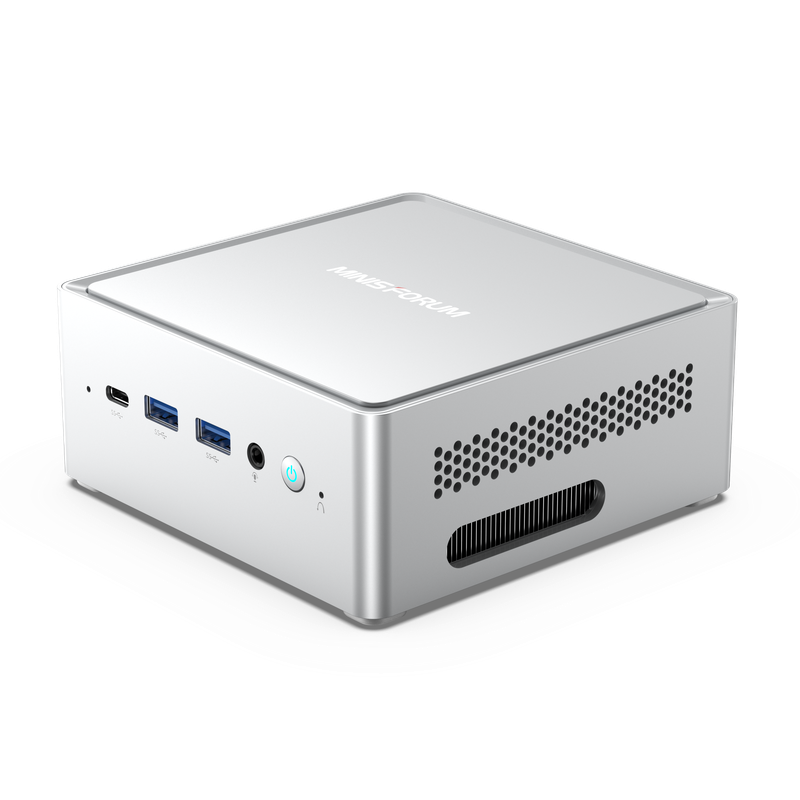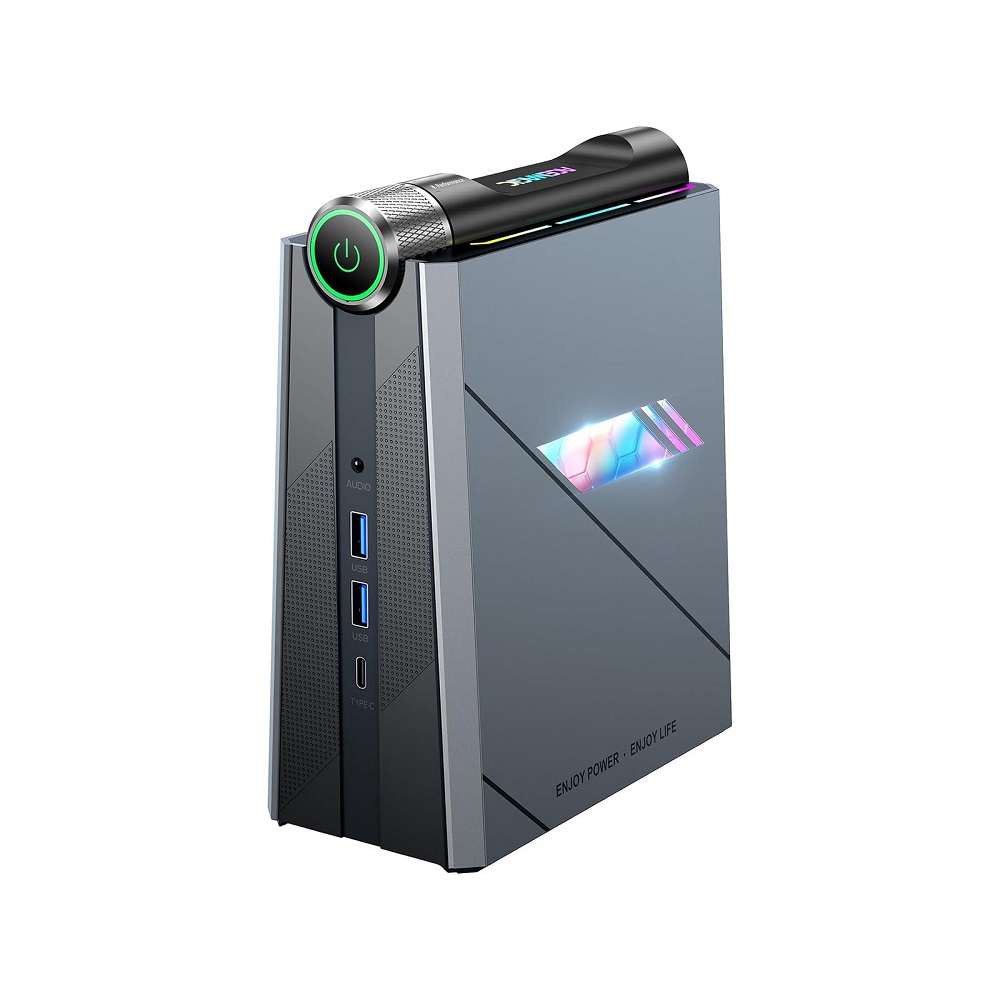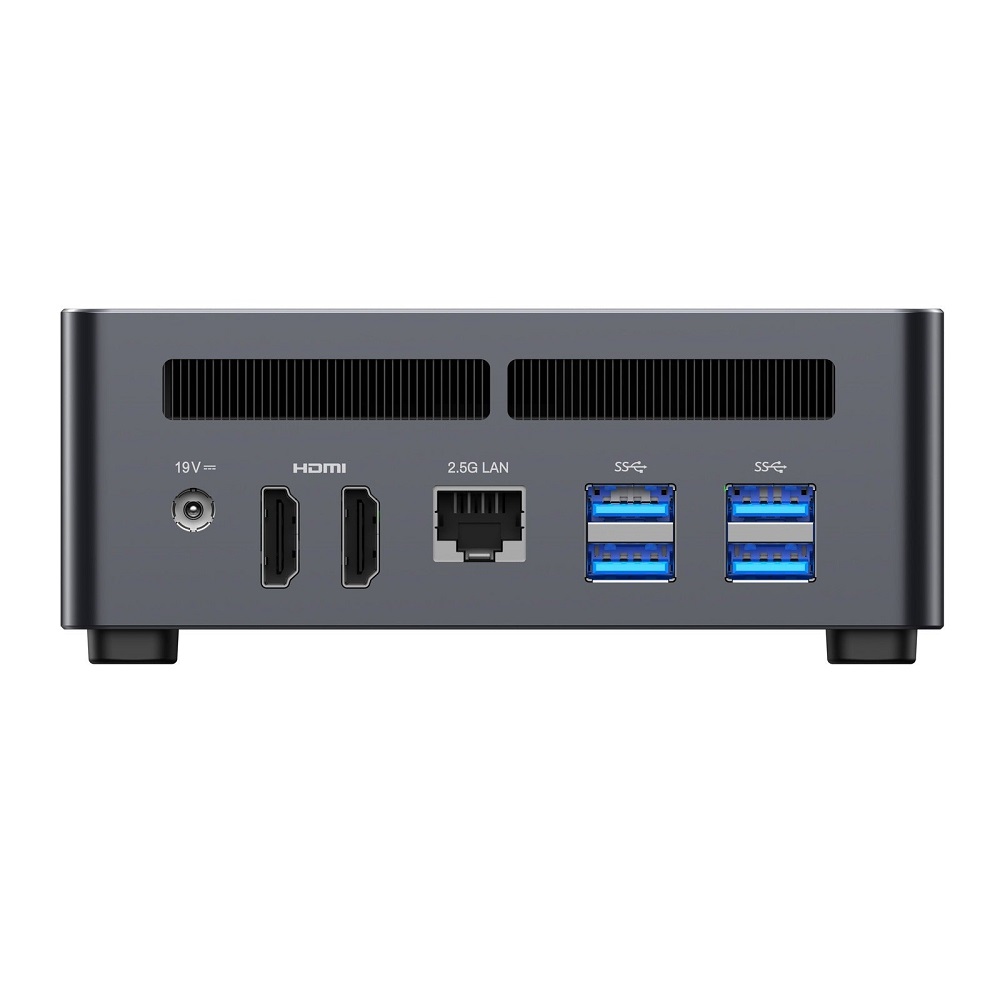As technology continues to advance, the way we interact with computers has evolved significantly. For home and office use, two primary types of computers have emerged as popular choices: mini PC vs desktop computers. Each offers its unique advantages and disadvantages based on performance, space efficiency, and usability. In this article, we will explore the pros and cons of mini PC vs desktop to help you make an informed decision for your computing needs.
Size and Space Considerations
Compact Design of Mini PCs
The most compelling feature of mini PCs is their compact size. Typically, these small devices resemble a thick book and can easily fit on a desk, shelf, or even mount behind a monitor. This compact design makes them an ideal solution for users with limited space, such as in apartments or small home offices.
Mini PCs are particularly well-suited for environments that require a clean aesthetic. Their low profile minimizes clutter and allows for efficient use of valuable desk space. For users who prioritize a tidy workspace and prefer minimalist designs, mini PCs provide a sleek and efficient option.
Space Requirement of Traditional Desktops
In contrast, traditional desktop computers take up a significant amount of room. A typical desktop setup includes a tower, monitor, keyboard, and mouse, which collectively require more space. While this setup can be arranged in a well-structured manner, it is less practical for smaller areas where space is at a premium.
However, the larger size of a desktop often allows for more powerful hardware. Desktops can accommodate larger cooling systems and additional slots for upgrades. As a result, they may be a better fit for users who require superior performance and plan to use their systems for resource-intensive tasks.

Performance Capabilities
Powerful Performance of Desktops
When it comes to performance, traditional desktops typically outperform mini PCs due to their ability to house more powerful components. You can find desktops equipped with high-end processors, extensive RAM, and dedicated graphics cards, making them better suited for demanding tasks like gaming, video editing, and graphic design.
Most desktops support extensive customization. You can easily upgrade or replace components to meet specific performance needs. This flexibility makes desktops an ideal choice for gamers or professionals who require heavy-duty performance over extended periods.
Sufficient Performance for Mini PCs
Mini PCs have come a long way in terms of performance, and many models offer surprisingly robust specifications. While they may not match desktops in raw power, many mini PCs are equipped with processors that handle everyday tasks effortlessly. They work well for browsing the internet, streaming videos, and running office applications.
For users who primarily engage in standard tasks, a modern mini PC can provide adequate performance. However, those with more demanding workloads should carefully consider whether a mini PC meets their performance requirements before making a purchase.
Energy Efficiency
Energy Consumption of Mini PCs
A significant advantage of mini PCs is their energy efficiency. Due to their smaller size and lower power requirements, mini PCs consume considerably less electricity than traditional desktops. This efficiency translates to lower energy bills and a reduced environmental footprint over time.
This energy savings can be particularly beneficial for businesses looking to minimize operating costs. Additionally, mini PCs often operate silently, making them ideal for locations where noise could be disruptive, such as libraries or quiet office spaces.
Power Consumption of Traditional Desktops
While traditional desktops provide powerful performance, they typically consume more electricity. This increased energy consumption, while manageable, can result in higher electricity bills over time, especially in environments where multiple units operate simultaneously.
For users who prioritize energy efficiency, desktops may not be the most optimal choice. However, many people still find that the additional power and capabilities offered by desktops justify the extra energy costs, particularly for resource-intensive tasks.

Portability and Mobility
Easy Portability of Mini PCs
One of the standout features of mini PCs is their portability. With their small size and lightweight design, you can easily transport them from one location to another. This portability allows for effortless relocation between home and office or even carrying them for travel purposes.
For users who attend meetings or conferences regularly, a mini PC can serve as a portable presentation tool. This capability means that you don’t have to rely solely on laptops, which can sometimes lack performance compared to desktops.
Fixed Nature of Desktops
In contrast, traditional desktops are generally stationary. Their setup typically involves multiple components, including a monitor, but many people choose not to move them frequently due to their size and the need for reconfiguration. This aspect makes them less suitable for users who require flexibility in their computing devices.
For users who primarily work from a single location, the lack of portability may not be an issue. However, portability becomes a significant disadvantage for those who need to change environments regularly.
Cost Considerations
Affordability of Mini PCs
Mini PCs often come with a lower initial price point compared to traditional desktops. Their compact size allows manufacturers to reduce costs on materials, leading to more competitively priced models. This affordability makes mini PCs an attractive option for budget-conscious consumers or businesses.
While you can find high-performance mini PCs that cost more, many entry-level models provide adequate capabilities for everyday tasks without breaking the bank. This value proposition makes mini PCs suitable for students or individuals starting their computing journey.
Investment in Traditional Desktops
On the other hand, traditional desktops usually require a higher initial investment. High-performance models come with a higher price tag due to the more powerful components, making them less accessible for budget-conscious buyers.
However, desktops often offer better long-term value. Their ability to upgrade components for enhanced performance means that, over time, you might ultimately get more out of your investment compared to a mini PC with fixed specifications.

Upgradeability and Customization
Limited Upgrade Options for Mini PCs
When considering future-proofing your computer, desktop options often have the upper hand. Mini PCs typically don’t offer much room for upgrading components, as they are designed to be compact and efficient. Although some models allow for RAM or storage upgrades, many components are soldered in place, limiting customization potential.
For users who anticipate changing needs or desires for higher performance in the future, mini PCs may fall short. Limited upgrade options can lead to premature obsolescence, requiring users to replace their systems sooner than they would prefer.
Extensive Customization with Desktops
Traditional desktops excel in terms of customization and upgradeability. You can easily swap out hard drives, upgrade RAM, and even replace graphics cards to keep pace with evolving technology. This flexibility is especially valuable for gamers, content creators, and professionals who have specific performance requirements.
The ability to easily upgrade components extends the lifespan of a desktop, ensuring that it remains relevant for many years. When a desktop can adapt to changing needs, it offers excellent long-term value to the user.
User Suitability
Best Fits for Mini PCs
Mini PCs are best suited for users who prioritize space efficiency, energy savings, and portability. They are ideal for students, casual users, or small office environments where desktop space is limited. If your computing needs revolve around web browsing, video streaming, or running basic office applications, mini PCs offer a compact and efficient option.
Additionally, for businesses that require basic computing capabilities for multiple users, mini PCs may provide a cost-effective solution. Their lower power consumption can lead to significant savings in larger office environments.
Ideal Users for Desktops
On the other hand, traditional desktops cater to power users. They suit gamers, graphic designers, and anyone needing heavy processing power. If you frequently engage in activities that demand high-performance applications, such as video editing or 3D modeling, a desktop is likely the better choice.
Desktops also work well in fixed office environments where portability isn’t a concern. They provide the performance and upgrade flexibility needed to handle more demanding tasks, making them an invaluable asset for creativity and productivity.
Making the Right Choice
When deciding between a mini PC vs desktop, consider your unique needs and the context in which you’ll use the computer. Mini PCs excel in portability, energy efficiency, and affordability, making them ideal for casual users and small spaces. Conversely, traditional desktops offer powerful performance, extensive upgradeability, and customization, appealing to those engaged in resource-intensive tasks.
Your lifestyle, budget, and computing requirements will ultimately guide your choice. Taking the time to weigh the pros and cons of each option can lead to a more satisfying computing experience. Whether you opt for the compact convenience of a mini PC or the robust capabilities of a desktop, both can significantly enhance your productivity and enjoyment in the digital world.
